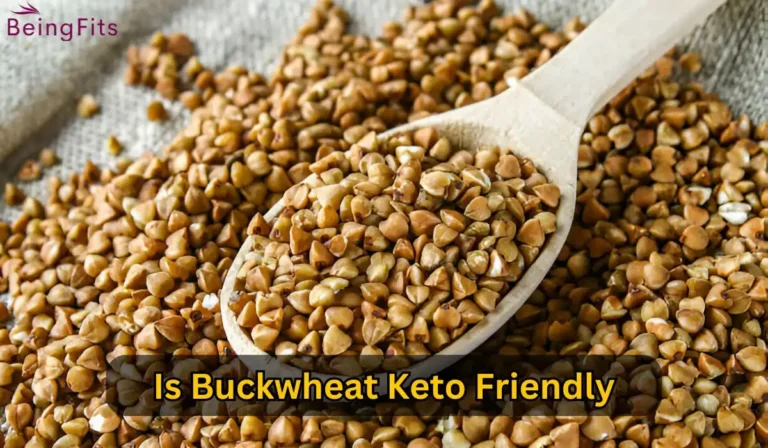Is Ginger Ale Keto Friendly? Understanding Its Carbohydrate Content and Alternatives
When exploring beverage options on a keto diet, ginger ale often raises questions. Traditional ginger ale is not keto-friendly due to its high sugar content, which can disrupt your ketosis. Thankfully, there are low-carb alternatives that allow you to enjoy similar flavors without the extra carbs.

Understanding the ingredients in ginger ale is crucial for making informed choices. Many commercial versions contain significant amounts of sugar, while diet options might use artificial sweeteners. Knowing how to read food labels can help you select the best drinks that fit your dietary needs.
Finding a keto-friendly beverage doesn’t have to be challenging. With a bit of research, you can discover tasty alternatives that satisfy your cravings while keeping your diet on track.
Key Takeaways
- Traditional ginger ale is high in sugar and not suitable for a keto diet.
- Low-carb substitutes and diet sodas can be great alternatives.
- Reading labels helps you choose drinks that align with your keto goals.
Ginger Ale Ingredients and Nutritional Profile

Understanding the ingredients and nutritional content of ginger ale is essential for those monitoring their carbohydrate intake. This drink typically includes a mix of carbonated water, ginger, sweeteners, and other flavorings.
Common Ingredients in Ginger Ale
Ginger ale usually contains the following main ingredients:
- Carbonated Water: This is the base of the drink, giving it its fizzy texture.
- Ginger Root: This ingredient provides the distinct flavor and some potential health benefits.
- Sweeteners: Many ginger ales use sugar or high-fructose corn syrup. Some brands offer diet versions with artificial sweeteners.
- Flavorings: Additional flavors such as lemon or lime may be included, depending on the brand.
It’s essential to read labels when choosing ginger ale, as some brands might use different ingredients that can significantly impact the nutritional profile.
Carbohydrate Content in Ginger Ale
Ginger ale is typically high in carbohydrates due to its sugar content. A standard 12 fl oz serving can contain anywhere from 32 to 38 grams of carbohydrates. This amount mostly comes from sugar, which can lead to increased blood sugar levels.
If you are on a ketogenic diet, the high carbohydrate content makes it challenging to fit ginger ale into your daily limits. Checking nutritional labels is crucial to understanding what you’re consuming and how it affects your diet.
Impact of Ginger Ale on Ketosis

Consuming ginger ale can have a significant effect on ketosis due to its sugar content. Understanding how sugar influences insulin levels and exploring alternative sweeteners is crucial for those on a keto diet.
Sugar and Insulin Response
Ginger ale contains a high amount of sugar, typically about 32-38 grams per 12-ounce serving. This sugar raises your blood sugar levels, triggering your body to release insulin.
Insulin is a hormone responsible for regulating blood sugar. High insulin levels can prevent your body from burning fat for fuel, putting you out of ketosis. For those strictly following a keto diet, it’s important to avoid drinks like ginger ale that can disrupt this metabolic state.
Drinks with significant sugar content can also lead to cravings for more carbs. This can make it challenging to stick to your dietary goals.
Alternative Sweeteners and Their Effects
If you enjoy the taste of ginger ale but want to maintain ketosis, consider alternatives. Many sugar-free versions use sweeteners like stevia, erythritol, or monk fruit.
These sweeteners have little to no impact on blood sugar and can prevent insulin spikes. Look for options that contain natural ingredients and avoid artificial sweeteners, which can have negative health effects.
Be cautious, as some sugar-free drinks still have high carb counts. Always check nutrition labels to ensure they align with your keto goals.
Keto-Friendly Beverage Alternatives to Ginger Ale
If you’re looking for drinks that fit your keto diet, there are tasty options beyond ginger ale. You can create refreshing homemade alternatives or choose from available commercial products that cater to low-carb needs.
Homemade Keto Ginger Ale Recipes
Making your own keto-friendly ginger ale at home is simple and fun. You can control the ingredients to ensure they fit your dietary needs.
A basic recipe includes:
- Fresh ginger: 1 tablespoon, finely grated
- Water: 2 cups
- Lemon juice: 2 tablespoons
- Sweetener: 2-3 teaspoons of erythritol or stevia (adjust to taste)
- Sparkling water: 1 cup
Start by boiling the water and adding the grated ginger. Let it simmer for about 10 minutes. Strain the mixture and mix in lemon juice and sweetener. Refrigerate until cool and then combine with sparkling water. This drink is refreshing and contains no sugar or carbs.
Commercial Low-Carb Ginger Ale Options
If you prefer ready-made options, several brands offer keto-friendly ginger ale. Reed’s Zero Sugar Real Ginger Ale is a popular choice. It has zero sugar, calories, and carbs while using real ginger juice for flavor, making it perfect for your diet.
Another option is Zevia Ginger Ale. It uses stevia as a sweetener and has no artificial ingredients. Check the label to ensure it fits your carb limitations. Both of these brands provide a great way to enjoy ginger ale without jeopardizing your keto goals.
How to Read Food Labels for Keto Diet
Understanding food labels is important when following a keto diet. Focusing on carbohydrates and added sugars helps you make choices that align with your dietary goals.
Understanding Carbohydrates on Nutrition Labels
When you check nutrition labels, pay close attention to the total carbohydrates listed. This number includes all types of carbs, including fiber and sugars.
For a keto diet, it’s essential to limit your daily carb intake. Aim for foods that have lower total carbohydrates, ideally under 5 grams per serving.
Also, look for dietary fiber, as it can be subtracted from the total carbs. Fiber is not digested by your body and does not impact ketosis.
To simplify, create a quick reference table:
| Total Carbs | Dietary Fiber | Net Carbs |
|---|---|---|
| 10g | 4g | 6g |
| 15g | 3g | 12g |
Use net carbs to guide your choices for staying in ketosis.
Identifying Added Sugars
Next, watch for added sugars on food labels. These sugars can significantly increase your carb intake and affect ketosis.
The label usually lists sugars separately from total carbohydrates. Focus on products with little to no added sugars. Ideally, choose items with 1 gram or less per serving.
Ingredient lists are also important. Common names for added sugars include:
- Sucrose
- High fructose corn syrup
- Agave nectar
Avoid these ingredients to maintain a low-carb intake.
Reading labels carefully allows you to select keto-friendly options while avoiding hidden sugars that can disrupt your diet.
Frequently Asked Questions
If you’re considering the keto diet, it’s essential to understand how ginger ale fits into it. Below are some common questions related to ginger ale and keto that can help clarify your choices.
What low-carb alternatives exist to traditional ginger ale for those following a ketogenic diet?
For a keto-friendly option, look for beverages like sparkling water infused with ginger flavor. Other alternatives include homemade ginger-infused drinks, using minimal sweeteners like stevia or erythritol, which have little to no carbs.
Can consuming ginger ale impact ketosis, and how might one measure its effects?
Yes, consuming regular ginger ale can impact ketosis due to its high sugar content, potentially disrupting fat burning. To measure its effects, monitor your blood ketone levels before and after consumption using a ketone meter.
Are artificial sweeteners like aspartame in diet ginger ale aligned with keto dietary guidelines?
Artificial sweeteners like aspartame are low in carbohydrates and generally accepted in the keto diet. However, some individuals may experience digestive issues or cravings, so it’s best to pay attention to how your body reacts.
How does the carbohydrate content of Canada Dry Ginger Ale compare with keto dietary requirements?
Canada Dry Ginger Ale contains about 29 grams of sugar per 12-ounce can. This is significantly higher than the typical daily carbohydrate limit for those on a keto diet, making it unsuitable for maintaining ketosis.
In what ways can ginger ale be included in a keto-friendly recipe?
You can use sugar-free ginger ale as a mixer in cocktails or mocktails. Adding it to recipes for salad dressings or marinades can also introduce a ginger flavor without the carbs.
Which sodas are considered keto-friendly, and how do they fit into a low-carb lifestyle?
Keto-friendly sodas include those that are explicitly labeled as zero-calorie and sugar-free, such as diet sodas sweetened with sucralose or stevia. These options can help satisfy cravings while keeping your carb intake low.




